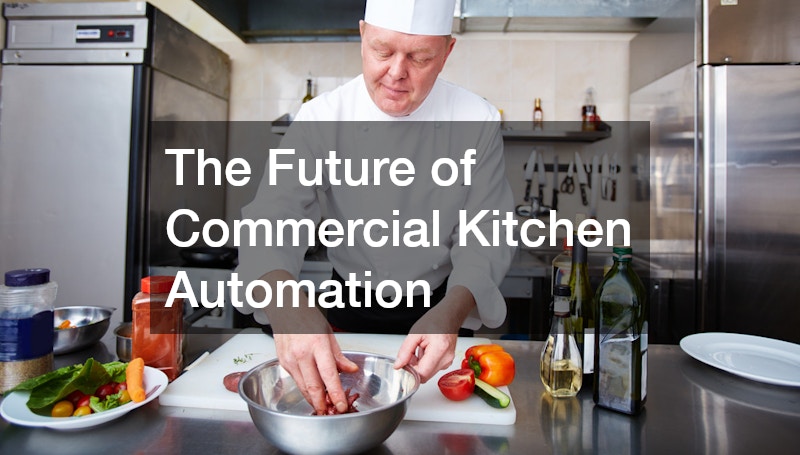The future of commercial kitchen automation is transforming how food is prepared, cooked, and served, promising to revolutionize the hospitality industry. Automation technology is already making waves, and its potential is only expected to grow in the coming years, improving efficiency, reducing labor costs, and enhancing food safety.
Advanced Cooking Technologies
One of the most exciting developments in commercial kitchen automation is the introduction of automated cooking systems. These machines can handle everything from grilling to sautéing with minimal human intervention.
Robotic chefs, like the ones already piloted in some fast-food chains, are becoming more precise, reliable, and adaptable to different cooking styles. Smart ovens and grills can adjust cooking times and temperatures based on the type of food being prepared, ensuring consistency across large volumes.
Automated Food Preparation
The food prep stage is often time-consuming and labor-intensive, but automation is changing that. Food preparation robots can chop, dice, slice, and even assemble meals with greater speed and precision than human workers. This can significantly reduce prep time while also minimizing waste. These technologies are already finding their way into high-volume kitchens, especially in fast-casual and chain restaurants. In the future, AI-driven systems could optimize recipe scaling and ingredient preparation based on real-time data, improving inventory management.
Inventory and Order Management
Kitchen automation is not limited to cooking; it’s also transforming inventory and order management. AI-powered inventory systems can track stock levels in real time, automatically placing orders when supplies run low. This reduces food waste and ensures that kitchens are always stocked with the right ingredients. Similarly, automated order systems integrated with point-of-sale systems can streamline the workflow by sending customer orders directly to the kitchen, improving speed and accuracy.
Enhanced Food Safety
Automation in commercial kitchens has the potential to significantly enhance food safety protocols. Smart sensors and automated monitoring systems can track temperature, humidity, and other environmental factors to ensure food is stored and prepared within safe guidelines. These systems can provide real-time alerts to staff, preventing potential foodborne illnesses.




